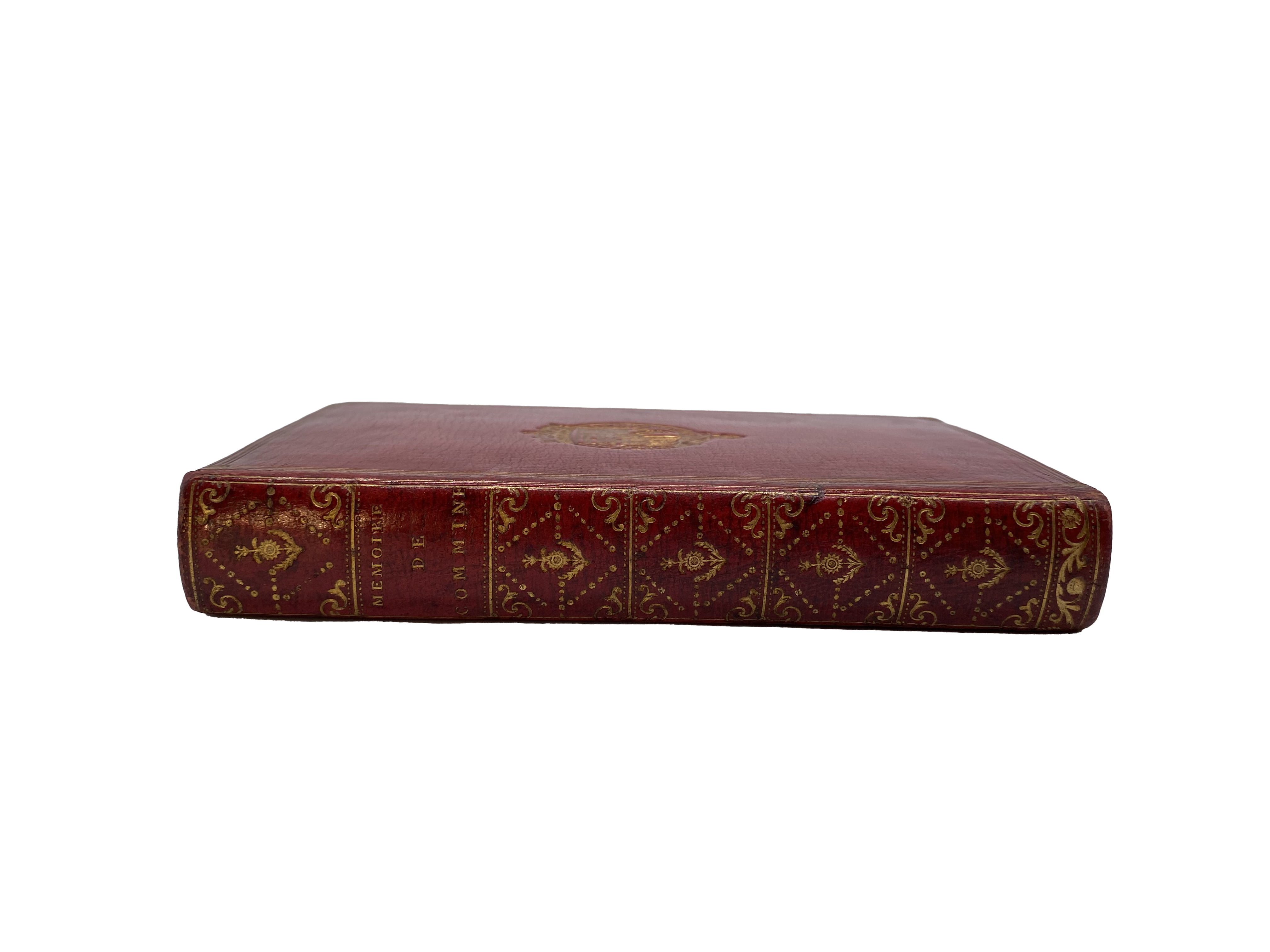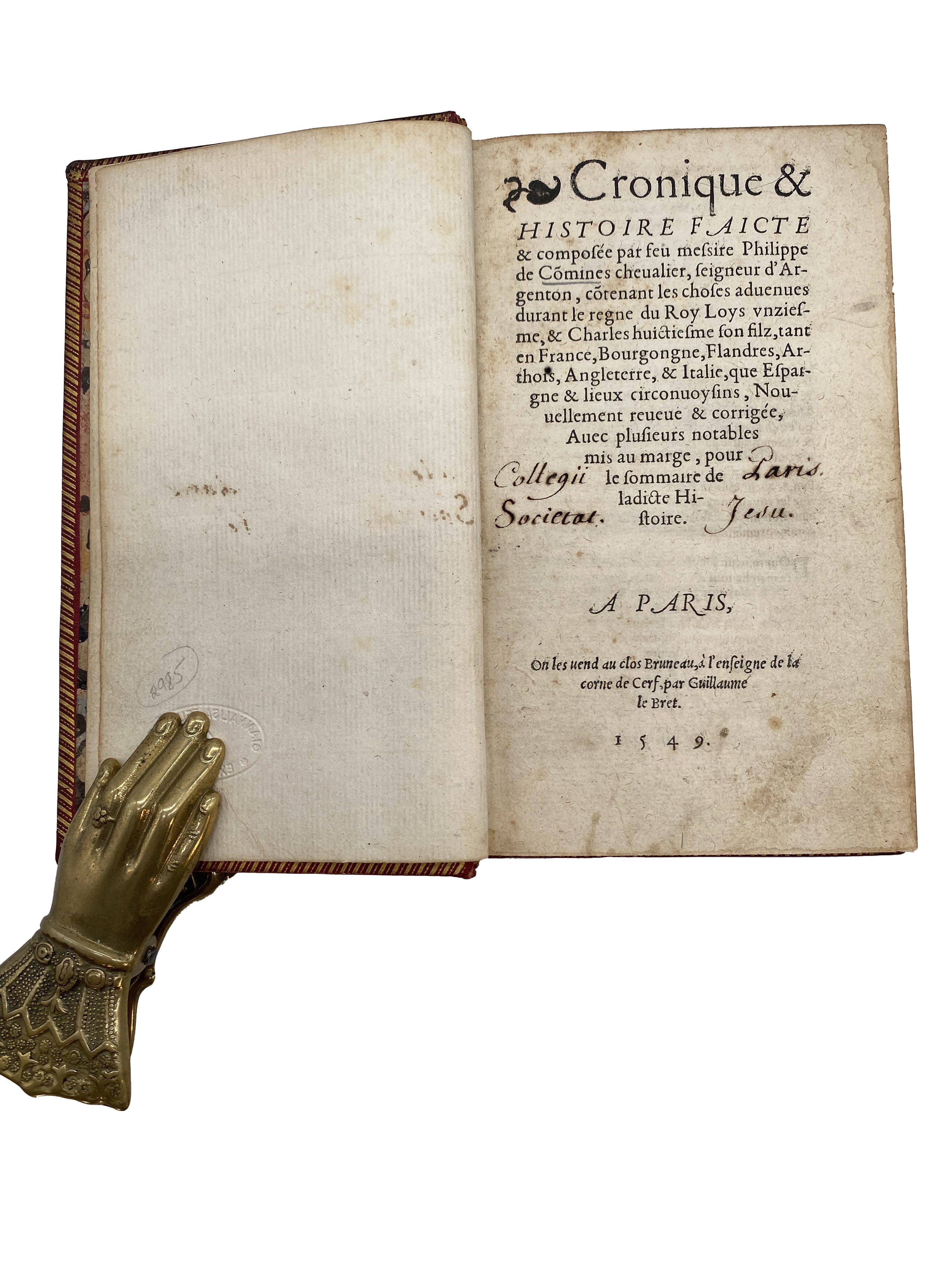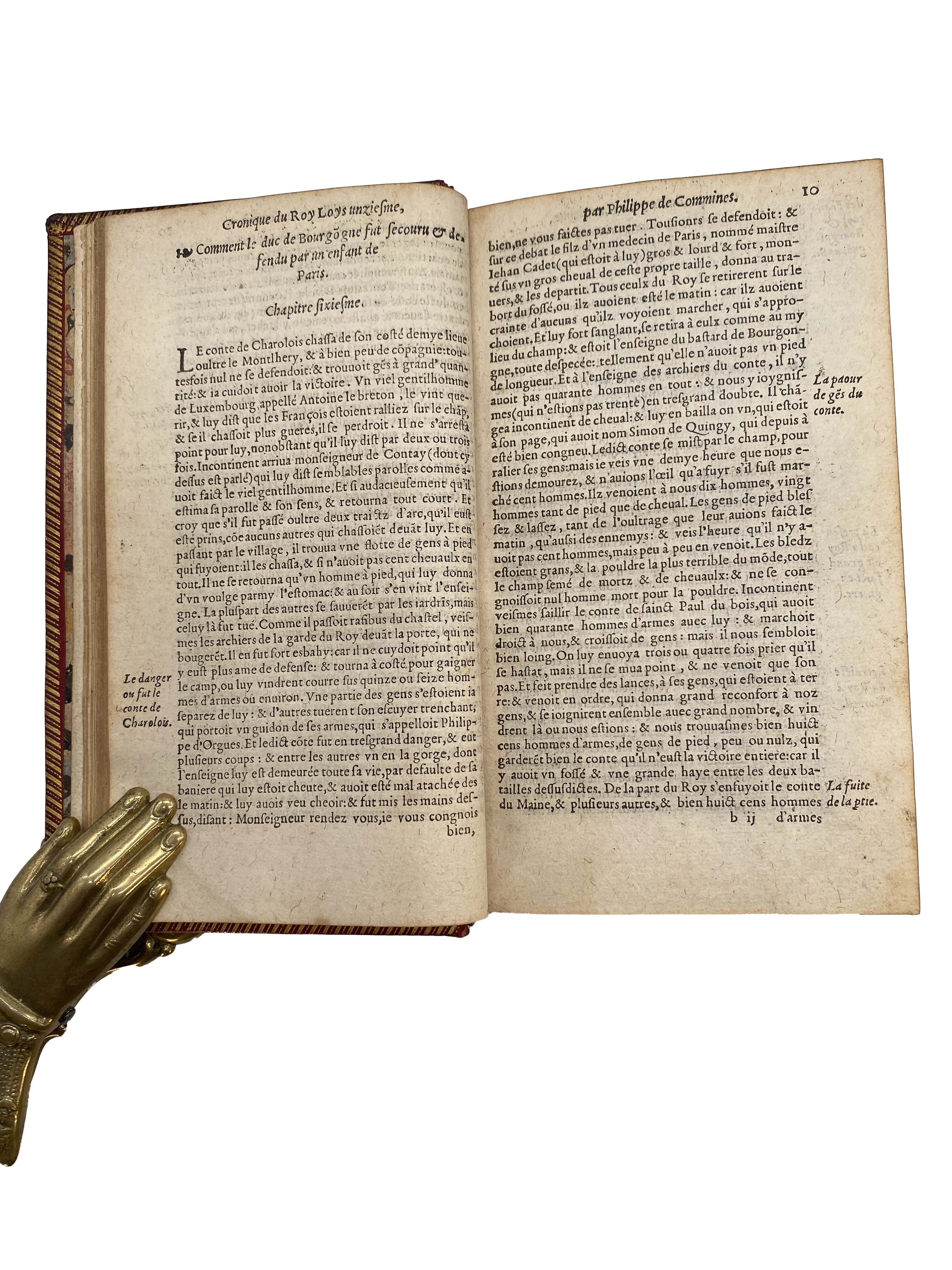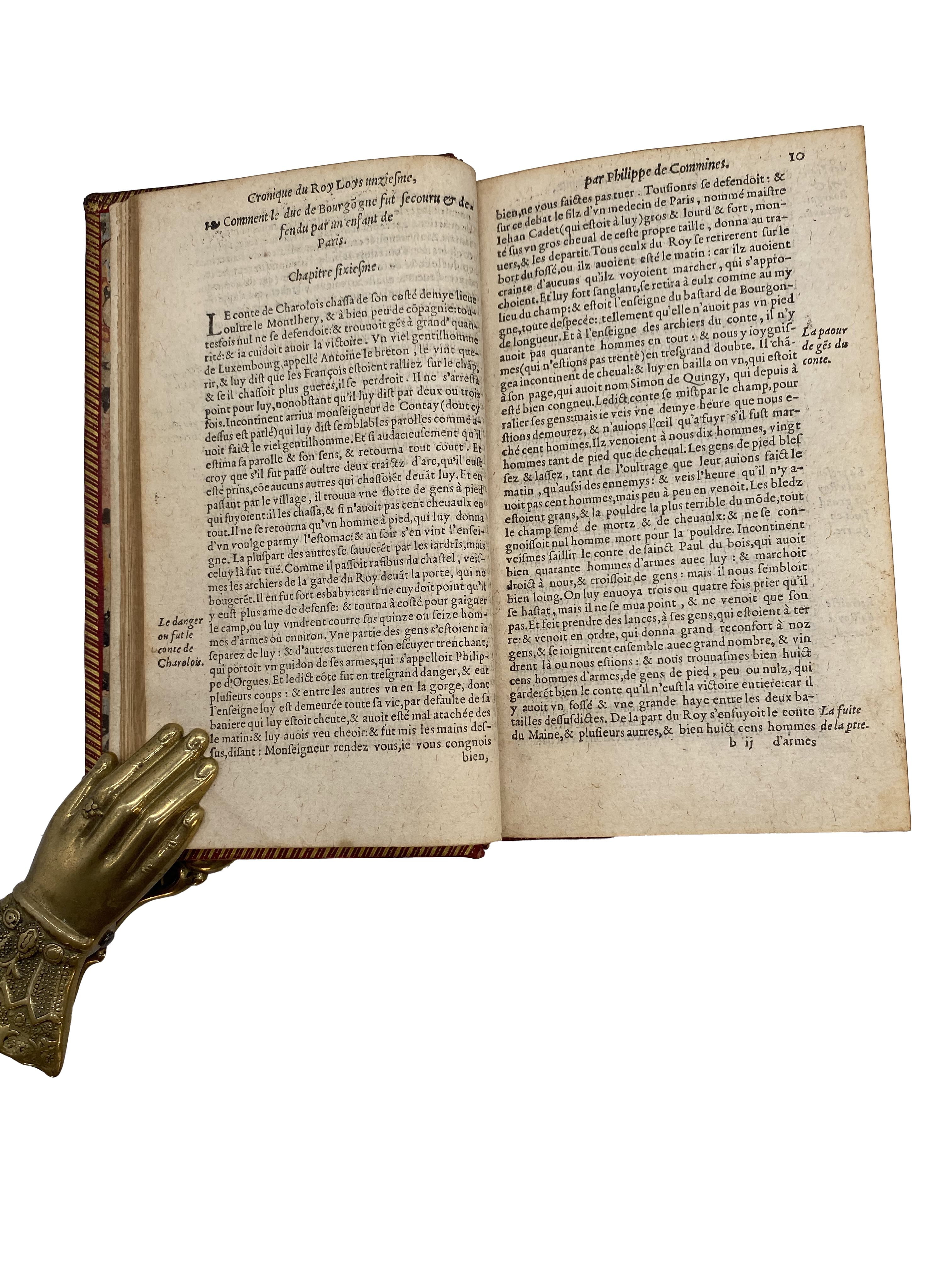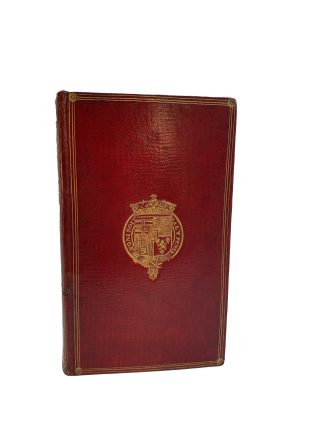COMMYNES, Philippe de.
Cronique & histoire...
Paris, Guillaume Thibout pour Guillaume Le Bret, 1549£2,950.00
8vo. ff. [8] 248. *8, a-z8, A-H8, (H8v blank). Roman letter, some Italic. Floriated woodcut initials, “Collegii Paris Societat Jesu” in early hand on t-p., bookplate of Giannalisa Feltrinelli on pastedown, her blindstamp on fly, price and date “12”1782” on fly. Light age yellowing, t-p a little dusty at outer margin, rare marginal mark. A fine copy in late C18th French straight grained red morocco, covers bordered with a triple gilt rule, stopped at corners with fleuron, arms of George Granville, 1st Duke of Sutherland gilt stamped on upper cover (Stamp 05 Toronto, British armorial bindings), spine gilt ruled in compartments richly gilt, with gilt fleurons at centres, scrolled corner pieces and pointillé tools, edges and inner dentelles gilt hatched, marbled endpapers, a.e.g. extremities fractionally rubbed.
Beautifully printed early edition of these important memoirs by Philippe de Commynes finely bound for the great English bibliophile, George Granville Leveson-Gower, 1st Duke of Sutherland (1758 – 1833). Philippe de Commynes has been described as”the first critical and philosophical historian since classical times” Oxford Companion to English Literature. Commynes initially served Charles the Bold at the Burgundian court but was persuaded to defect to the court of Louis XI of France in 1472. He rapidly became one of Louis’ closest advisors. Following Louis’ death Commynes was involved in a rebellion against the crown and was imprisoned for two years. After his release, exiled to his estate at Dreux, he began to write his Memoirs which he finished in 1498, fifteen years after the death of Louis XI, though they were not printed until 1524. The memoirs are considered a historical record of immense importance, largely because of its author’s cynical and forthright attitude to the events and machinations he witnessed. His writings reveal many of the less savoury aspects of the reign of Louis XI, and Commynes recounts them without apology, insisting that the late king’s virtues outweighed his vices. He is regarded as a major primary source for 15th century European history. The ‘Mémoires’ are divided into “books”, the first six of which were written between 1488 and 1494, and relate the course of events from the beginning of Commynes’ career (1464) up to the death of King Louis. The remaining two books were written between 1497 and 1501, and deal with the Italian wars, ending in the death of King Charles VIII of France. Commynes’ scepticism is summed up in his own words: “Car ceux qui gagnent en ont toujours l’honneur” “The honours always go to the victors”. Some have disputed whether his candid phrases disguise a deeper dishonesty. Yet at no time does he attempt to present himself as a hero, even when recounting his military career. His attitude to politics is one of pragmatism, and his ideas are practical and progressive. His reflections on the events he has witnessed are profound by comparison with those of Froissart, who lived a century earlier. His psychological insights into the behaviour of kings are ahead of their time, reminiscent in some ways of the contemporaneous writings of Niccolò Machiavelli. Like Machiavelli, Commynes aims to instruct the reader in statecraft, though from a slightly different viewpoint. In particular, he notes how Louis repeatedly got the better of the English, not by military might, but by political machination.
A fine copy with tremendous provenance; Bound with the arms the 1st Duke of Sutherland (1758-1833), described by Charles Greville as a “leviathan of wealth” and “…the richest individual who ever died”.
In stock



